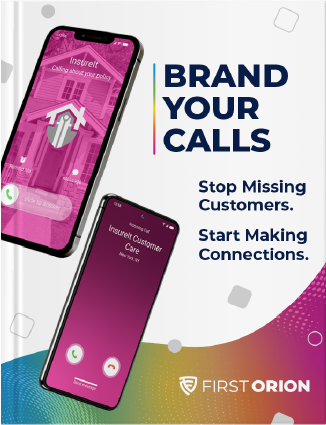When it comes to homeownership, buyers face many hurdles, from understanding loan preapprovals to making an initial down payment on your house to the difference between a fixed rate and variable rate loan. Buying a home can be a stress-inducing, hair-pulling, and, not to mention, expensive process!
Scammers only add to that stress by taking advantage of unsuspecting new homeowners with complex loan terms and conditions.
A Scam Does Not Make A Home
Buying a home is one of the most significant purchases a person will ever make, so it’s no surprise that it’s big money for scammers, leading to more than $350 million in real-estate-related losses in 2021 alone. That’s an increase of more than 64% from 2020. Not only are mortgage and real-estate-related scams big business, but they’re also on the rise and getting worse.
So, what can you do to prevent losing money to a scammer and ruining what should be a significant milestone in a person’s life? The first step is to identify a mortgage scam before you become a victim.
Common Types of Mortgage Scams
Summer is the peak time for scammers to come after unsuspecting victims, especially Millennials and Gen Z, who are steadily increasing their share of homeownership in the United States.
First-time homeowners are easy victims of scammers because they are unaware of the tactics used.
No Money? No Problem!
One of the most common tactics that fake mortgage companies use is the promise of a special mortgage rate despite the homeowner not having the recommended income.
According to the Consumer Financial Protection Bureau, your monthly mortgage payment should be at or below 28% of your monthly income before taxes.
If a mortgage lender is offering you a mortgage payment plan that is more than that number, they’re probably counting on your inability to pay for it, aka foreclosure. Once that happens, the lender swoops in and takes the house back, leaving you evicted and nowhere to go.
Too Good to Be True? Probably
Have you ever heard “Bad credit? No credit? We don’t care!” from a mortgage lender?
When you hear a mortgage lender offer you an expensive home loan despite your lack of credit, it’s time to run for the hills! These types of loans are predatory and typically target low-income individuals who might have credit issues.
The terms for these types of loans often come with outrageous interest rates and terrible terms, meaning you’ll pay way more on your home than an average loan and possibly sink further into debt.
Reversing Your Trust
Younger homeowners aren’t the only ones getting scammed. Home equity conversion mortgages (HCEM), also known as reverse mortgages, are another popular loan that scammers abuse.
Reverse mortgages are popular with older homeowners – those 62 and older or at retirement age – which use lump sum payments to pay the loan based on the home’s equity.
Scammers take advantage of reverse mortgages by offering to apply for the HCEM loan on a homeowner’s behalf. The scammers then take a portion of the money intended for the homeowner each month.
When the senior homeowner passes away, families are shocked; scammers never paid the loan and instead pocketed the money, leaving families with massive debt,
An Unwarranted Call
It’s not just mortgage loans that scammers are using to trick new homeowners; we’ve also noticed a recent rise in home warranty scams in the first half of 2022.
According to our research, home warranty scams have seen a 542% increase in the past 90 days. Along with life insurance and financial assistance, we think this is a scam trend to watch for the remainder of 2022.
Home warranty scammers target seniors and use deceptive tactics to trick homeowners into buying fake or unfair warranty packages. Scammers use callback numbers to trick victims into dialing the number and revealing personal information.
To identify a home warranty scam, look for unclear policy terms, claim or cancellation policies that are difficult to understand, and poor customer reviews through a Google or social media page.
How Can I Stop Scam Calls?
Being a homeowner doesn’t have to be a scary experience. The good news is that these scams can easily be identified and avoided by following a few simple tips:
Always read the fine print – Scammers tend to hide unfair practices and outrageous loan terms in the fine print of documents because they know many people don’t read them. Scan all documents before signing an agreement to ensure the terms are fair.
The “dream rate” is actually a nightmare – A super low-interest rate with no downsides and no credit required. Sounds too good to be true? In this case, trust your gut. A lender is most likely attempting to take advantage of you. Be on the lookout for offers that seem unrealistic to the average buyer.
Don’t accept unsolicited offers – Why are you suddenly bombarded with unsolicited offers in the mail or over the phone? Chances are predatory lenders are attempting to trick residents in your area. Always check with a legitimate mortgage service provider and ignore unsolicited loan offers.
Verify that a business is legit – Does “Jerry’s Totally Real Not Fake Loans” sound a bit suspicious? The easiest way to suss out a real company from a fake one is to verify it through a quick web search. Google the business’s name and see if any links to reported scam alerts pop up. You can also check to see if their business address or phone number comes back with legitimate search results.
Avoid upfront payments – If a business ever asks you to pay an upfront fee without explaining how your payment will be used, drop contact with them. Always get a written explanation of how the business will use your payment before paying any fees.




